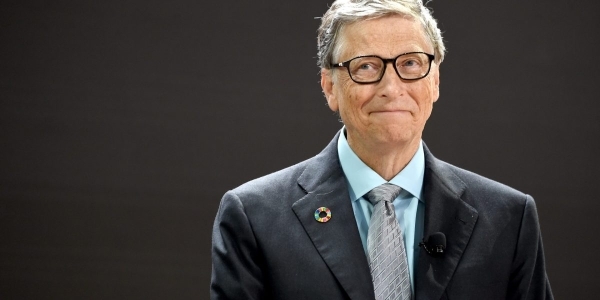
Bill Gates isn’t going to be joining the billionaire space race anytime soon.
In an interview with BBC World News that will air on Friday, the billionaire Microsoft cofounder—whose charitable foundation has put funding behind global efforts to roll out COVID vaccines—said there were social issues that needed to be prioritized more highly than privately funded rocket launches.
“It’s actually quite expensive to go to Mars,” he said. “You can buy measles vaccines and save lives for $1,000 per life saved. And so [that] just kind of grounds you, as in—don’t go to Mars.”
Gates’ fellow billionaire entrepreneurs Elon Musk, Richard Branson, and Jeff Bezos have all put money into space exploration, each launching their own company in recent years focused on traveling to outer space. Musk has previously spoken about his ambition to colonize the red planet.
COVID ‘bogeyman’
Gates’ commitment to continue funding vaccines and other public health initiatives has in recent years seen him thrust into the center of widespread conspiracy theories—one of the most prominent of which falsely claims that he is involved in a secret scheme to use COVID vaccines to implant microchips into the global population.
“During the pandemic, there were tens of millions of messages that I intentionally caused [the virus], or I’m tracking people,” he told the BBC.
“It’s true I’m involved with vaccines, but I’m involved with vaccines to save lives. These messages sort of inverted that. I guess people are looking for the ‘bogeyman’ behind the curtain, the oversimplistic explanation. Malevolence is a lot easier to understand than biology.”
He admitted that the prevalence of disinformation is a phenomenon that caught him by surprise, and added that people’s inability to disagree with each other in a respectful way frightens him.
“[The] degree of political polarization in the United States, and we see that somewhat outside the United States, is higher than it’s ever been in my lifetime, and it scares me,” he said.
Gates has previously spoken out about how conspiracy theories and misinformation have impacted his life, revealing in an interview last year that strangers who bought into false narratives would often yell at him in the street.
